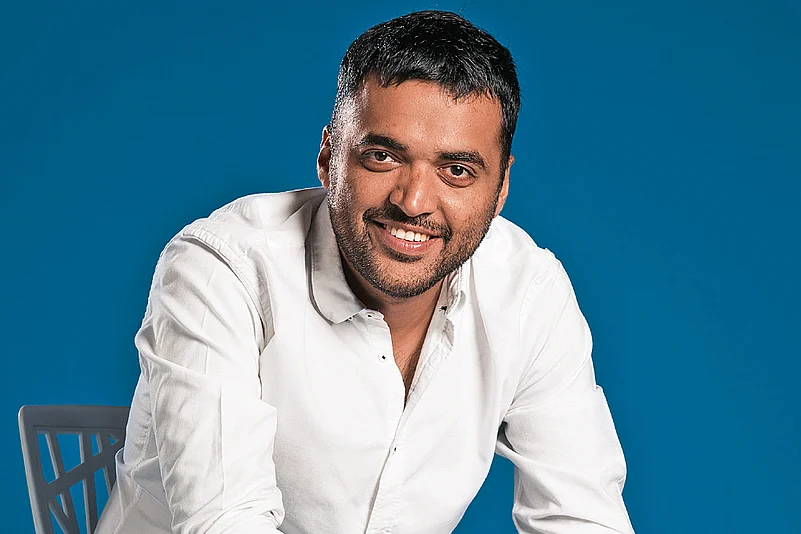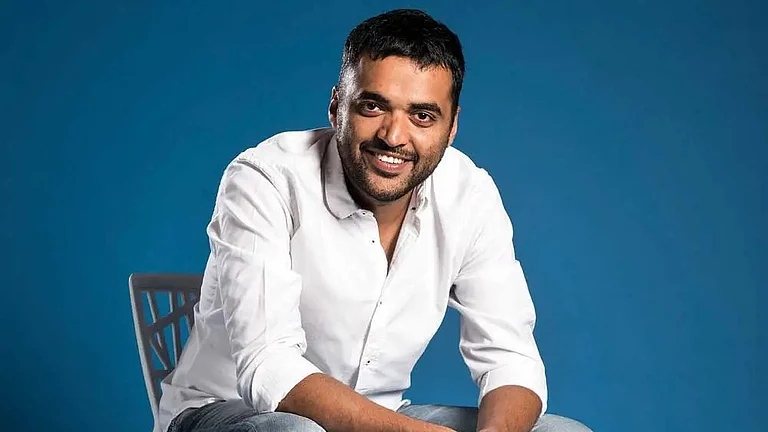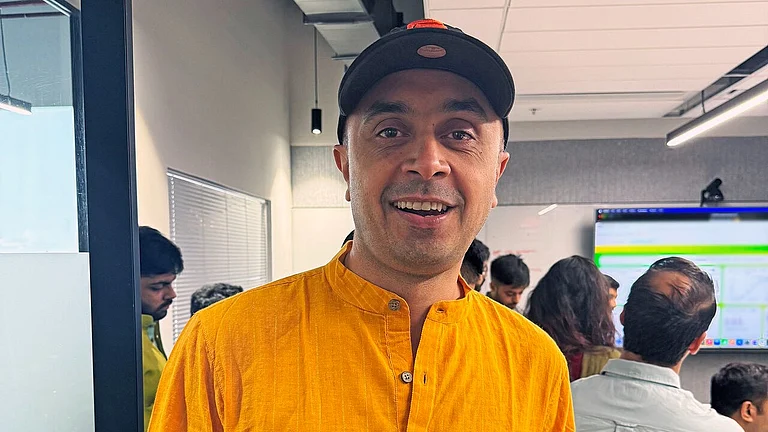The night Nadir Shah attacked Delhi in 1739, Mughal badshah Muhammed Shah was engaged in delirious revelry, at least so goes pop history. Nevermind the historical accuracy of the story, its message rings true: empires die when emperors take it easy. And that is a truth Deepinder Goyal knows well.
Back in 2022, in the days following the end of pandemic restrictions, the food delivery market had slowed. Having made a bumper entry into the stock market only a year ago, Zomato was finding it difficult to show profitability. Its multiple in-house forays into grocery delivery had failed. Its stock price was plummeting.
At this juncture, Goyal made an audacious bet. He went and acquired Blinkit, a loss-making company for many years for a whopping sum of Rs 4,447 crore. No one understood the move at the time. Zomato’s stock price took a further beating.
Observers said Zomato was biting off more than it could chew. But loyalists maintained it was a calculated bet because Zomato had already acquired a minority stake in the company and that had given Goyal the opportunity to take a close look at Blinkit’s finances.
According to people in the know, he spent six months diving deep into the inner workings of Blinkit to understand if it could be turned around. He even got Blinkit executives to work out of Zomato’s offices before the acquisition happened.
Saviour and the Saved
Fast forward to April 2024, Blinkit emerged as the crown jewel in Zomato’s expanding empire. Goldman Sachs valued the quick-commerce platform more than Zomato’s original food-delivery business. Deepinder Goyal, speaking at an event recently, called his bet on Blinkit “survival instinct”. Zomato has recorded profits at a consolidated level four quarters on a trot.
This has happened as Zomato’s food delivery arm has started seeing the flywheel effects of scale—customers are using the app more frequently, and the company’s bargaining power with eateries has increased. Its delivery riders are busier every hour of the day.
As much as winning is a habit in sports, profitability becomes a habit for companies. Once you get into that space, you continue to get it right. Sreedhar Prasad, Start-up Investor
Zomato has also started eating into Swiggy’s market share inch by inch. Swiggy’s share of the market fell from 52% in 2020 to 45% in 2023, while Zomato gained. Goyal’s company has made strategic investments in non-metro cities. Initially deemed unprofitable, these investments have yielded long-term gains.
“As much as winning is a habit in sports, profitability becomes a habit for companies. Once you get into that space, you continue to get it right. But it’s not easy for many tech companies to get to profitability,” says Sreedhar Prasad, a veteran start-up investor and management consultant.
When Things Fall Apart
But there was a time when the company had veered from its path to profitability. This happened immediately following Zomato’s public market debut. Goyal sensed that a number of employees, including some senior members who had made a lot of money in the initial public offer (IPO), had lost the drive to get things done.
Goyal realised that if he took off for a weekend trip or hit the gym an hour earlier than usual in the evenings, it reflected on how Zomato employees behaved. They would take his departures as a cue to let their hair down a bit. And that the Zomato chief, who frequently says “It’s still day zero” could not bear to see. Heads rolled. And in its aftermath, Goyal led by example. It is said that he would often be the first person to walk into work and the last one to leave and that he allowed himself no weekends.
The toil paid rich dividends to Zomato’s shareholders. The company’s market capitalisation has jumped more than two-fold to well over Rs 2 lakh crore over the past year.
Experts say that a key marker of a venture capital-backed company’s future potential is how bullish its early investors are. Revealingly, Sanjeev Bikhchandani-backed Info Edge, one of the earliest investors in Zomato, is holding on to its 13.5% stake worth about Rs 30,000 crore. Zomato’s cap table now includes blue-chip investors like Vanguard and sovereign wealth funds of Norway, Singapore and Kuwait.
What are they betting on? A trillion-dollar market opportunity? A new value pool through Zomato’s entry into the going-out business?
Or are they betting on Deepinder Goyal? The 41-year-old chief executive with undying hunger and unending agility. He is after all the ‘key man’, the one who is expected to keep taking wild swings at opportunities of the future. Goyal is a changemaker not only because he has made a killing with Blinkit but also because he is able to change with the times.











